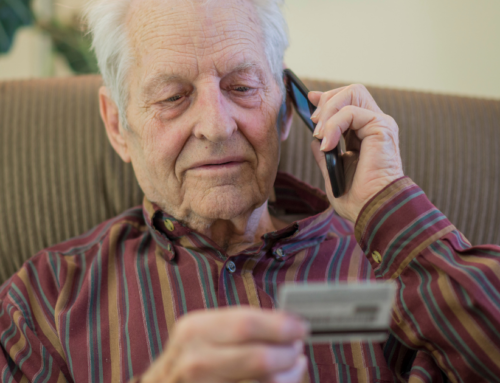Financial fraudsters are always looking for a fresh angle, with new scams popping up every day. The elderly are prime targets for many reasons, including their higher-than-average credit scores, sizable retirement nest eggs, and polite, all-too-trusting nature. Sadly, countless seniors fall victim to scams each year, many of which are perpetrated by family members.
As an older adult, here’s what you need to know to protect yourself from swindlers and their latest schemes.
Beware of These Elder Fraud Tactics
On their website, the FBI specifically warns seniors that they are prime targets for elder fraud. These are some of the latest scams that financial fraudsters like to use:
Funeral and Cemetery Scams
Scammers read obituaries and then show up at the funeral telling relatives that the deceased owed them money. Dishonest funeral homes sometimes pile on extra charges to grieving spouses and other survivors, such as telling them that an expensive casket is necessary for cremation even though a cardboard casket will suffice.
Affordable Care Act and Medicare Scams
One of the latest scams involves an official-looking letter from the IRS saying the recipient owes them money under the Affordable Care Act (ACA). This scam exploits confusion resulting from ACA reporting requirements and penalties, with unsuspecting seniors, often being the target. However, anyone on Medicare should not be getting mail about the ACA. As a precaution, all notices that seem suspicious should be verified with the IRS.
The COVID-19 pandemic created even more healthcare scams, including medical “cures,” requests for money, and official-sounding notifications. Companies have attempted to take advantage of fearful seniors by peddling fake remedies not approved by the FDA.
Package Delivery Scams
Online shopping has become the “new normal” for many older adults rather than an occasional convenience. This phenomenon has created new opportunities for swindlers posing as fake delivery companies to fool consumers into giving out their personal information.
Typically, the potential victim will receive a phone call, text message, or email from someone posing as a mail carrier or parcel delivery service claiming to deliver a package to their home. When the person doesn’t remember ordering anything, the scammer will pretend that the package is a gift from a friend or relative.
During the call, the swindler will request personal information, including credit card data to reschedule the “delivery.” Email messages— complete with official-looking logos and professional language— encourage readers to click on a tracking link to receive a mysterious package. But clicking on the link allows the malware to download, giving the con artist access to passwords and other personal information.
To avoid package delivery scams, be wary of any unsolicited communications. Package delivery companies never contact customers via an unsolicited telephone call or text. Keep track of legit online purchases and scheduled deliveries. And finally, never give your personal information to strangers. You can find more details about package delivery scams and how to avoid them on the Better Business Bureau’s (BBB) website.
Internet Scams
The Digital Age has prompted a rise in new Internet scams, including those that target seniors who aren’t tech-savvy. When clicked on, unsolicited emails in your inbox can download malware onto whatever device you’re using. Many innocently appear as official-looking emails promoting popular household brands.
Never click on links in unsolicited emails, especially those from people you don’t know. Moreover, be aware of companies you have never done business with nor requested information from.
How to Protect Your Nest Egg
Sometimes, seniors are reluctant to report a scam fearing that people will judge them as incompetent to handle their affairs. If you feel like you’ve been scammed, don’t be afraid or embarrassed to talk about it with someone you trust. Keep a list of scam-reporting resources and phone numbers handy, including the police, your financial institution, and Adult Protective Services.
An Extended Family in Your Loved One’s Home
Protecting your aging loved one from scam artists isn’t always easy when you’re busy or live far away. At New Wave Home Care, we’ve been helping families in Southern California for over 10+ years now. Our main focus is keeping aging loved ones safe and comfortable in their own homes. As a licensed home care provider, we support clients and their families with personalized in-home solutions. We offer personal care, transitional care, respite care, dementia and Alzheimer’s care, and hospice support.
When you choose New Wave Home Care in Pasadena, you can rest assured that your loved one is getting the specialized care they need from a trusted, friendly caregiver. To learn more now or schedule a FREE in-home assessment for a senior in the greater Los Angeles area, please visit us at www.newwavehomecare.com.





